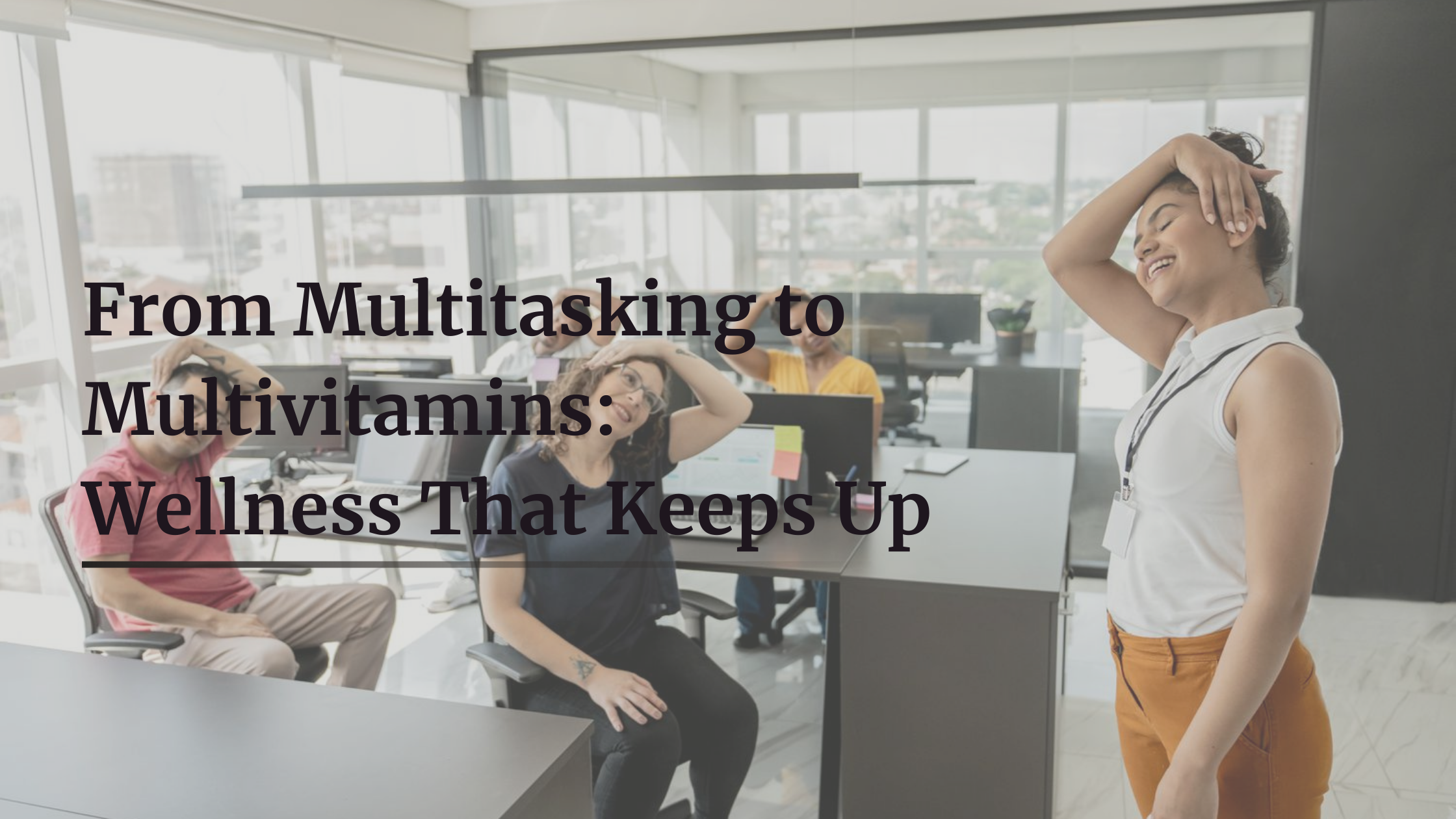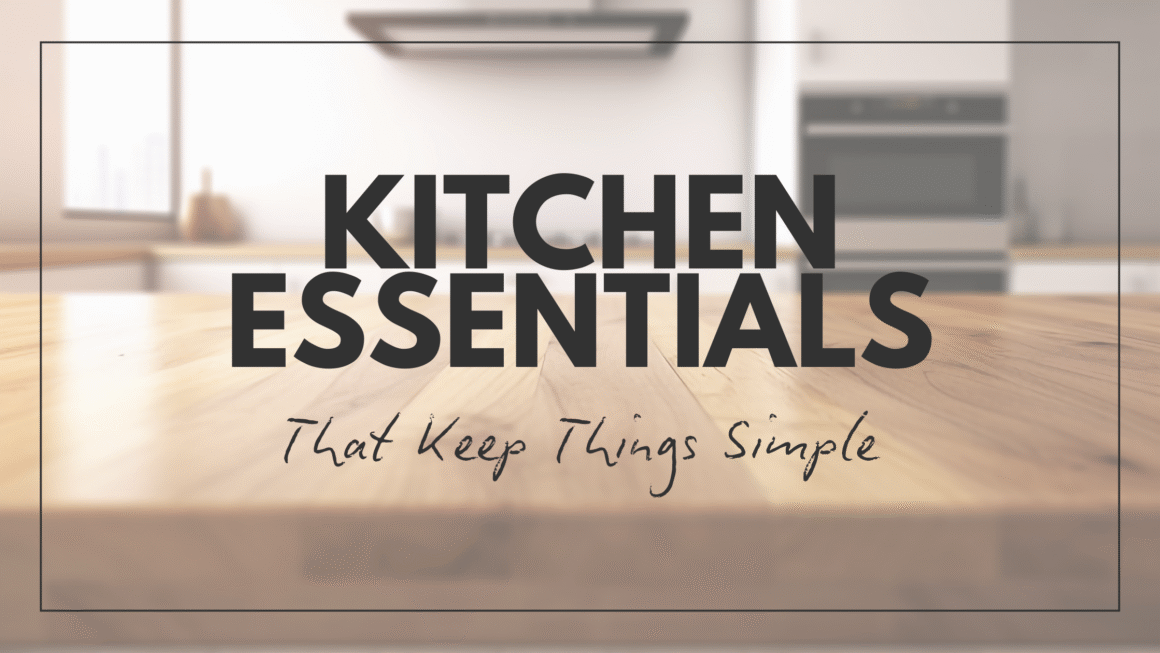You’re juggling meetings, messages, meals, and maybe your mood, too. Most days, you manage it all—but your body feels like it’s lagging behind. Today’s fast-paced lifestyle asks more from you than ever before, and willpower alone isn’t always enough. That’s where smart, steady support can make a difference. Multivitamins aren’t magic, but they can help fill the nutritional gaps that often show up when your days are full and your energy is running thin. From mental fatigue to immune stress, learn how multitasking affects your body—and which nutrients can help you stay balanced, focused, and ready for what’s next.
What Multitasking Really Does to Your Body
Multitasking may feel productive, but your body often pays the price. Juggling tasks at work, at home, and on your phone places a constant demand on your mental and emotional reserves. Over time, this “always-on” state can drain essential nutrients and create a cycle of fatigue, tension, and poor recovery. While modern life demands flexibility and focus, the body functions best when it’s supported—especially at the cognitive and nervous system level.
The Brain in Overdrive
Every time you switch between apps, conversations, or tasks, your brain burns through energy and nutrients to stay alert. This mental ping-pong effect can feel like progress but actually leads to faster fatigue and lower focus. Nutrients like B vitamins and magnesium are essential here—helping to fuel brain activity, reduce cognitive stress, and maintain mental clarity. Omega-3 fatty acids also play a role, supporting memory, mood, and attention by nourishing the brain’s structure itself. This article on Vitabiotics explores how targeted nutrients can support energy, focus, and immunity without overwhelming your system.
Stress, Sleep, and the Nervous System
Chronic multitasking activates your stress response more than you might realize. Even low-level pressure—from deadlines to constant notifications—can push the nervous system into overdrive. Over time, stress hormones like cortisol rise while stores of magnesium, vitamin C, and other key nutrients drop. Without proper balance, this disrupts your sleep-wake cycle, making it harder to recover fully overnight. The result? You wake up tired, mentally foggy, and less equipped to handle another demanding day. Supporting the nervous system with consistent nutrition helps restore this balance and protects the body’s ability to recover and perform.

Where Nutrition Often Falls Short
Even with the best intentions, modern routines make it difficult to get everything your body needs from food alone. Between busy mornings, unpredictable schedules, and fatigue-fueled cravings, nutritional gaps can develop quickly—and they’re easy to miss. Over time, these small deficits can quietly impact your energy, focus, and resilience, especially when paired with stress and irregular eating patterns.
Skipped Meals and Fast Fixes
When time is tight, nutrition often takes a back seat. Skipping meals or grabbing convenience foods might keep you going short-term, but they rarely deliver the nutrients your body truly relies on. Many ready-made options are low in iron, zinc, and B vitamins—micronutrients essential for energy metabolism, concentration, and immune defense. Going too long without proper fuel can also cause energy crashes, mood swings, and reduced cognitive performance. These daily imbalances add up, making sustained focus and productivity feel harder than they should.
How Stress Increases Nutrient Demand
Stress doesn’t just impact how you feel—it changes what your body needs. When you’re under constant pressure, your system works harder behind the scenes, using up key nutrients faster than usual. Without steady replenishment, this can quietly lead to fatigue, weakened immunity, and burnout. Here’s how stress affects your nutritional balance:
- B-Complex Vitamins
Used rapidly during stress to support brain function, mood regulation, and energy production. Deficiencies can lead to irritability, low focus, and fatigue. - Magnesium
Essential for calming the nervous system and regulating muscle and nerve function. Stress depletes magnesium, which can trigger tension, anxiety, and sleep issues. - Antioxidants (like Vitamin C and E)
Needed to combat oxidative stress caused by elevated cortisol levels. A lack of antioxidants may slow recovery and impair immune response.
Staying consistent with nutrient-rich meals and supportive habits helps the body manage stress more efficiently—so you feel steadier, clearer, and more resilient throughout the day.
What a Good Multivitamin Can Do
Multivitamins aren’t instant fixes. But when used consistently, they help support the systems that often wear down under pressure—energy, cognition, and immunity. B vitamins, for example, support everything from brain chemistry to red blood cell production. And antioxidants like vitamin C and E work behind the scenes to reduce the effects of everyday stress. Brands like GNC have taken a functional, research-led approach to this kind of daily support. Here’s a breakdown of how GNC’s formulas stack up when it comes to energy and immunity balance.
Energy and Cognitive Support
- Iron and B12
Help reduce fatigue by supporting red blood cell production and oxygen transport—essential for physical and mental energy. - Vitamin B6 and Folate
Aid in neurotransmitter function and brain clarity, improving focus, memory, and mental stamina throughout the day.
Immune System Reinforcement
- Vitamin C, Vitamin D, and Zinc
Work together to strengthen immune response, reduce the impact of daily stressors, and help your body bounce back faster from illness. - Daily protection
A balanced immune system is better equipped to handle seasonal changes, work stress, and environmental challenges.
A Foundation for Long-Term Health
- Fills quiet nutritional gaps
Even a well-rounded diet can miss key nutrients—multivitamins help ensure consistency across days. - Supports preventive wellness
Helps your body maintain balance over time, rather than waiting for signs of deficiency to take action.
A quality multivitamin doesn’t replace healthy habits—but it can make them stronger. GNC’s approach to daily supplements offers a good look at how formulation and science intersect to support foundational wellness.
Choosing the Right Multivitamin for Your Lifestyle
Not all multivitamins are created equally—and not everyone needs the same one. The best multivitamin is the one that complements your body, your habits, and your day-to-day demands. Choosing wisely means looking beyond flashy labels and focusing on formulas that match your real needs. With the right fit, a multivitamin becomes a quiet but powerful part of your wellness routine.

Know What You Need (and Don’t)
Your nutrient needs are shaped by your age, biological sex, activity level, stress load, and dietary habits. For example, women may need more iron, while men may prioritize heart and energy support. If you’re pregnant, in menopause, training intensely, or constantly under pressure, your requirements shift even further. That’s why targeted formulas—rather than one-size-fits-all blends—offer more meaningful support. Knowing what you don’t need is just as important, helping you avoid unnecessary extras and stay focused on what benefits your body most.
Look for Evidence-Based Formulations
A quality multivitamin should be grounded in science, not marketing hype. That means using forms of nutrients your body absorbs well, and offering them in safe, effective amounts—not overwhelming megadoses. Choose brands that base their formulations on clinical research, and steer clear of products filled with synthetic fillers, binders, or trendy ingredients that lack proven benefits. Your body will thank you for choosing smart, targeted nutrition that supports—not overwhelms—your system.
Making It Part of Your Daily Routine
Wellness routines work best when they’re easy to stick to—and that’s exactly how your multivitamin should feel. It shouldn’t be one more task to remember or a complicated commitment. Instead, it should fit naturally into your day, offering support in the background while you focus on everything else life asks of you.
Keep It Consistent and Simple
The key to getting the most out of a multivitamin is consistency. Taking it at the same time each day—like with breakfast or your first glass of water—helps make it a seamless habit. Since many nutrients are better absorbed with food, linking it to a meal is a smart move. Over time, this small act can deliver noticeable results, from steadier energy to stronger immune support. Missing a day here or there isn’t critical—but regular use makes the difference.
Combine with Other Smart Habits
Multivitamins work best when they’re part of a broader foundation of self-care. Supporting your body through quality sleep, daily hydration, and even light movement can improve how nutrients are used and how you feel overall. Together, these habits reinforce each other. A supplement alone won’t replace healthy choices—but when paired with them, it can help you stay more resilient, more focused, and better equipped to handle each day.
Conclusion: Wellness That Moves With You
You don’t need to hit pause on your life to start feeling better—you just need to give your body the right kind of support. Multivitamins aren’t about quick fixes or dramatic changes. They’re about helping you stay steady, focused, and energized through the chaos of everyday life. By filling in the quiet gaps that busy routines often create, they give your body the tools to keep up and recover without burnout. Wellness doesn’t have to be complicated or time-consuming. With science-backed nutrients and a bit of consistency, it becomes something that moves with you—supportive, effortless, and truly sustainable.




